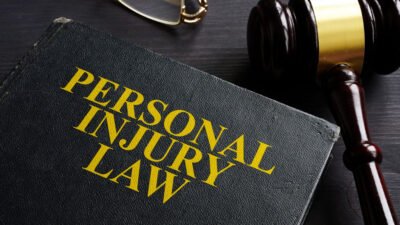After a crash, accident injury lawyers provide crucial guidance through complex legal and insurance processes. They help victims understand their rights, gather evidence, and build strong claims to seek fair compensation for medical bills, lost wages, and emotional distress. Their negotiation skills and legal knowledge level the playing field against insurance companies. Their support ensures victims can focus on healing while protecting their long-term financial and legal interests.
The Aftermath Of An Accident: Common Challenges Victims Face
A car crash, slip and fall, or workplace mishap can completely upend a person’s life in seconds. While the immediate focus tends to center on visible injuries—like fractures, cuts, or head trauma—the true scope of hardship only becomes clear in the days and weeks that follow. Medical bills start piling up swiftly, sometimes before treatment is even complete, leaving families scrambling for financial solutions. Recovery timelines are rarely predictable, and the lost wages from missed work only add to the anxiety. This is where having an accident injury lawyer by your side can be transformative, guiding you through insurance labyrinths and helping you focus on healing rather than endless paperwork.
Many common, but costly, mistakes are often made in the aftermath of an accident. Forgetting to take pictures, not seeking immediate medical attention, or making statements to insurance adjusters that could later be used against you are just a few examples. These oversights can weaken an otherwise valid claim. When dealing with stress and pain, it’s easy to make decisions that feel right in the moment but may harm you down the line. Early legal guidance helps victims avoid pitfalls that permanently undermine their right to fair compensation. The sooner you get reliable advice, the more likely you will keep critical evidence intact and maintain control over your case.
Understanding Personal Injury Law: Your Rights And Options
Personal injury law exists to compensate people harmed by someone else’s negligence or recklessness. Yet, there are numerous myths and misunderstandings about what sort of injuries or incidents the law covers. For many, the details blur together: Is long-term emotional trauma covered? Can you claim lost future earnings? The law’s reach is broader than you might think. Compensation may extend beyond hospital bills and include rehabilitation costs, lost earning capacity, ongoing therapy, and sometimes even damages for pain and suffering. You can explore the range of types of personal injury cases that courts routinely address, and it’s evident that cases run the gamut from slip-and-falls to injuries caused by defective products and animal attacks.
State laws differ on key details, such as how long you must file a claim (statute of limitations) and how damages are calculated. Some states allow victims to recover damages even if they are partly at fault, while others may cap specific compensation. Educating ourselves about the local rules is essential to avoid missing critical deadlines or opportunities for recovery. Consulting with legal experts, even on a preliminary basis, can clarify your options and help you determine whether your situation fits within established legal categories.
The Role Of An Accident Injury Lawyer In Your Recovery
After an accident, the path to recovery is rarely straightforward. There are endless forms, recorded statements, doctor’s appointments, and sometimes confusion about what comes next. Having a dedicated attorney ensures you’re not navigating these complexities alone. A seasoned accident injury lawyer can take the lead on negotiating with insurance companies, entities famous for their focus on protecting profits, sometimes at the expense of accident victims. They also handle the logistics of gathering evidence, securing witness statements, and compiling a comprehensive medical record that documents both trauma’s visible and invisible impacts.
Without this expert assistance, many claimants find themselves at the mercy of insurance adjusters skilled in minimizing payouts or denying claims altogether. Insurance contracts often contain obscure or unclear language that can complicate self-advocacy. By working with a lawyer, you put a knowledgeable advocate in your corner, one who can put pressure on the insurance company and guide you through the entire legal process—from that first phone call, through negotiations, and if necessary, to trial. This advocacy level often means the difference between a lowball offer and receiving the compensation needed to rebuild your life.
Key Qualities To Look For When Choosing Legal Representation
Selecting a personal injury lawyer is much more than locating the firm closest to your home. You should approach the process as you would any other partnership: with careful thought and the willingness to ask tough questions. Look for a lawyer who communicates in a way you understand and who takes the time to explain complex legal jargon without brushing off your concerns. Experience is key; attorneys who have handled cases similar to yours are more likely to anticipate challenges and know what it takes to win.
- Clear communication:You should receive updates about your case and feel comfortable asking questions. A lawyer who explains each step helps you stay confident and involved.
- Relevant experience:Check the attorney’s history—have they successfully resolved cases like yours? Board certifications or recognitions can signal expertise.
- Transparency about fees:Upfront, honest dialogues about payments, contingency fees, and potential out-of-pocket costs help build trust.
- Responsiveness:Timely answers to calls and emails indicate respect for your time and urgency.
During consultations, trust your intuition. Consider looking elsewhere if a lawyer dodges your questions, rushes explanations, or makes grandiose promises. Building a solid, respectful relationship pays dividends throughout your claim.
The Value Of Evidence: Building A Strong Personal Injury Case
In any personal injury case, evidence is the cornerstone of justice. Successful claims are built on detailed and timely documentation: photographs of injuries and property damage, receipts for expenses, and credible witness statements. Medical records are compelling, offering a timeline of your injuries and treatments. A simple, handwritten log that tracks symptoms, appointments, and discomfort levels can be persuasive proof.
The timing of evidence-gathering cannot be overstated. The National Highway Traffic Safety Administration highlights that immediate, thorough documentation improves victim outcomes. Details can be quickly lost: witnesses move, weather conditions change, and memories fade rapidly. By capturing every relevant fact as soon as possible, you greatly enhance your chances of achieving a fair settlement or favorable verdict.
Mythbusting: Common Misunderstandings About Accident Claims
Many people feel embarrassed or even guilty about pursuing a personal injury claim, influenced by media portrayals of “frivolous lawsuits.” The truth is starkly different. Research consistently shows that most personal injury lawsuits are rooted in significant medical bills, missed work, or ongoing recovery needs. These are real-life consequences, not exaggerated scenarios for easy money. Further, insurance companies examine each claim thoroughly and often require extensive documentation before agreeing to any settlement.
Another common misconception is that filing a lawsuit means months or years spent in court. Most cases resolve through negotiations long before a trial occurs. An experienced lawyer’s ability to present clear facts and leverage evidence often encourages reasonable settlements, saving time and stress for everyone involved.
The Financial Side: Legal Fees And Payment Structures Demystified
The thought of legal costs prevents many accident victims from seeking help, but the reality is often more affordable than expected. Most accident injury lawyers work on a contingency fee basis. This means you pay nothing up front; your lawyer only receives a fee if you win your case or obtain a settlement. Typical contingency rates vary, so don’t hesitate to ask for details and to clarify whether additional expenses (like court filing fees or expert testimony) might arise during your case.
Many firms also offer free initial consultations, allowing you to evaluate your options before committing. By understanding these payment models, you can confidently pursue professional help without fear of unexpected bills, ensuring you access the representation you deserve.
Moving Forward: Resources And Next Steps After An Accident
If you or a loved one has recently suffered an accident, your top priority should always be your health and peace of mind. Begin by seeking medical treatment, even if you feel “fine”—some injuries surface days or weeks after the event. Keep detailed records of all medical visits, expenses, and daily challenges. Consider joining support groups or working with a counselor to process the emotional impact, as mental recovery is as crucial as physical restoration.
Gather as much evidence as possible, consult reputable attorneys, and avoid posting details about the accident on social media, as insurers often monitor such platforms. By acting quickly and utilizing knowledgeable, compassionate support, you protect your rights and give yourself the best opportunity for a fair, expedient recovery. While the path to justice after an accident is rarely easy, the proper steps and support can provide a much-needed sense of control and hope in difficult times.



